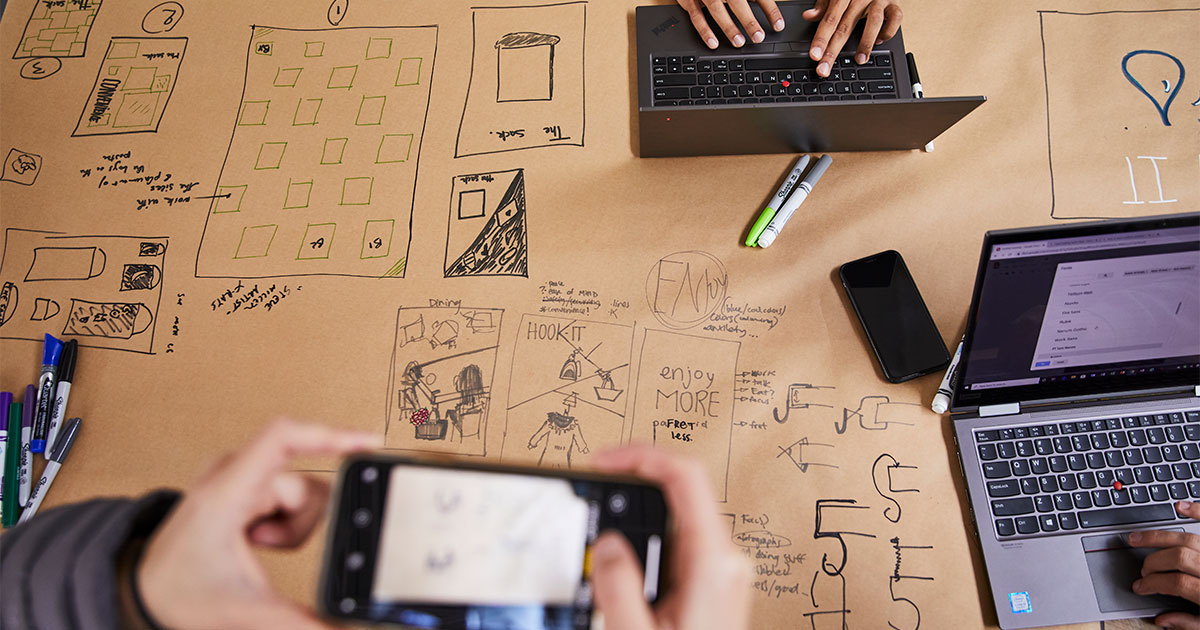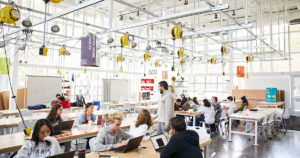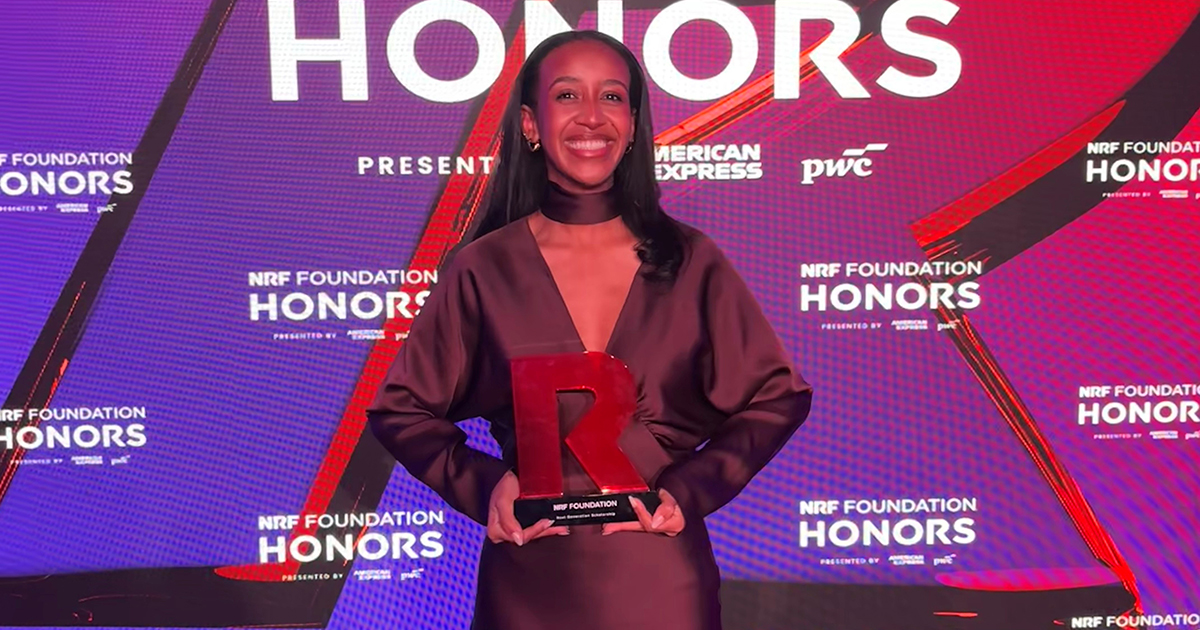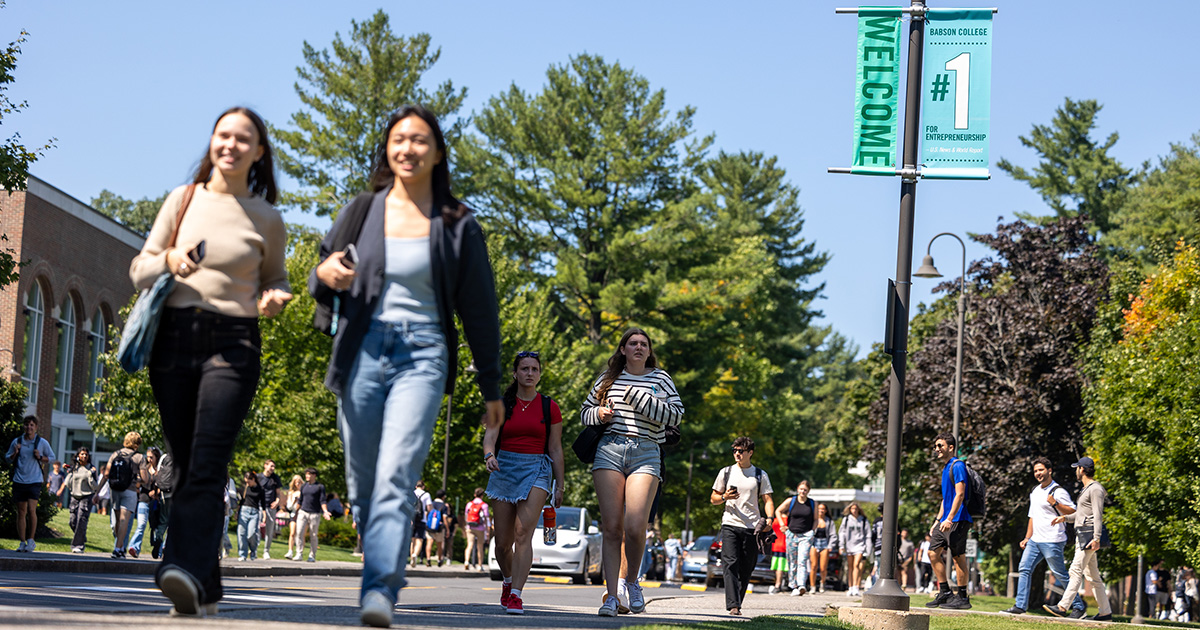Creativity Abounds at the Weissman Foundry

On a bright, bustling Tuesday afternoon in the Weissman Foundry, Grant Ekstrom MS’20 stands holding what appears to be the insole of a shoe.
“This is a random experiment we’re doing,” says Ekstrom, a frequent visitor to the Foundry, an innovation and design space at Babson College. Around him, the Foundry has a hum to it, of machines whirring and people working.
Ekstrom is part of a team of students, all in the Master of Science in Management in Entrepreneurial Leadership program, developing a smart medical device venture called FootSense. A provider of rehabilitation products, FootSense aims to improve recovery through real time data feedback and doctor-patient connectivity.
GALLERY: In response to COVID-19, the Weissman Foundry at Babson is finding creative ways to be of service in these uncertain times.
Which brings us to the insole Ekstrom is holding. “I built this in 20 minutes,” he says. “It’s a quick prototype.” Made out of cardboard and foam, with some circuitry slipped inside, the insole is a rough approximation of the kinds of products FootSense would offer. Worn in a shoe, it would provide data about a patient to a medical practitioner.
For the product to work efficiently, though, users would need to pull the insole out of their shoe every night and charge it. That’s not something people are used to doing. Sure, they know to charge their phones, but shoes are an entirely different matter.
So Ekstrom built the prototype and began walking around the Foundry, asking people that critical question: Can you picture yourself pulling this insole out of your shoe and charging it? “The biggest issue with rehabilitation is compliance,” he says. “This is to test initial reactions. We want to see how people engage with the product.”
Creativity, Community, Collaboration
Such is the nature of the Foundry, a place to build, try, and test. When students such as Ekstrom and his FootSense team visit the Foundry, an impressive array of equipment is available to them, from textile tools to video cameras to digital fabrication technology.
More than equipment, though, the Foundry provides visitors with an empowering culture that embraces sharing and exploration, says Erik Noyes, associate professor of entrepreneurship and the Foundry’s faculty director. With its warm and welcoming atmosphere, the Foundry is co-run by students and faculty from Babson, as well as from nearby Olin and Wellesley colleges. When students from all three schools come together, they can gain new perspectives from each other.
“This place is about creativity and community,” says Noyes. “There is a lot of collaboration.”
Another Team with a Project
As Ekstrom walks around the Foundry seeking input on his handmade insole, Samuel Saville MS’20 stands by the laser cutter. Saville doesn’t know how to use it, so he’s relying on the aid of Kaitlyn Campbell, a sophomore at Wellesley College and one of the students, known as scouts, who staff the Foundry.
Scouts support visitors with their projects and also hold workshops on a long list of topics, from cooking to coding to pattern making for clothes. “The scouts are very helpful,” says Saville. “You can learn a lot of skills at the Foundry. If you need expertise to build something, they will find someone to help you.”
“You can learn a lot of skills at the Foundry. If you need expertise to build something, they will find someone to help you.”
Samuel Saville MSEL’20
Saville is part of another MSEL team working on a business. Their venture is Blokbox, which provides a container for smartphones that effectively prevents them from being a distraction. Put a smartphone in one of Blokbox’s copper-lined containers, say before a business meeting or class, and it will cease to buzz with notifications and calls.
“You are cut off from the world,” says Saville. “As soon as you pull the phone out of the box, it’s ready to go again.”
Saville watches as the laser cutter whirls to life, etching the logo for Blokbox until a piece of wood. Eventually, that logo may go on one of Blokbox’s containers. When the machine finishes, Saville examines the final etching.
“That’s excellent,” he says.
This story was originally written in 2019, and was updated in 2020 to reflect the Foundry team’s effort to create value in response to COVID-19.
Posted in Community




